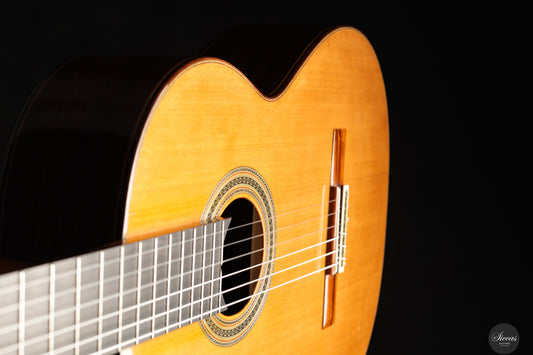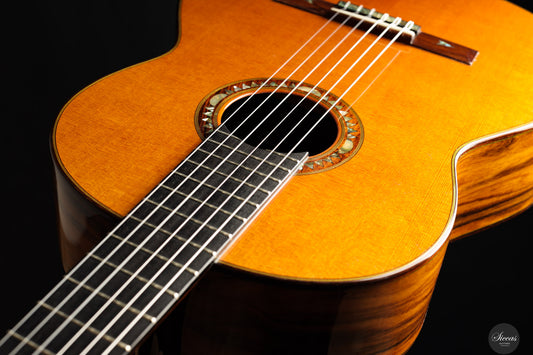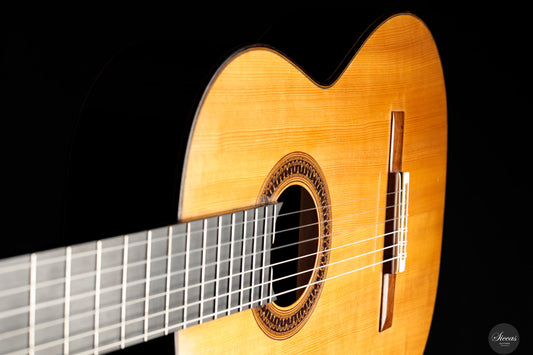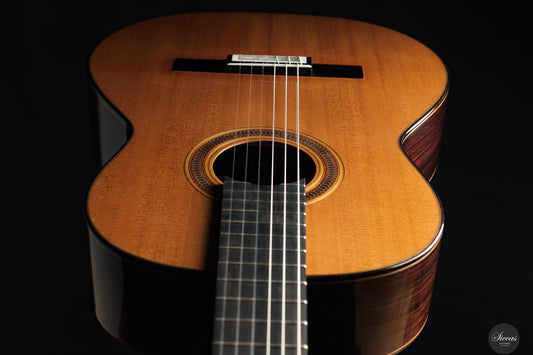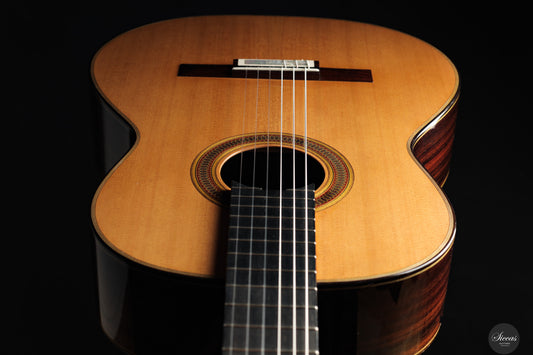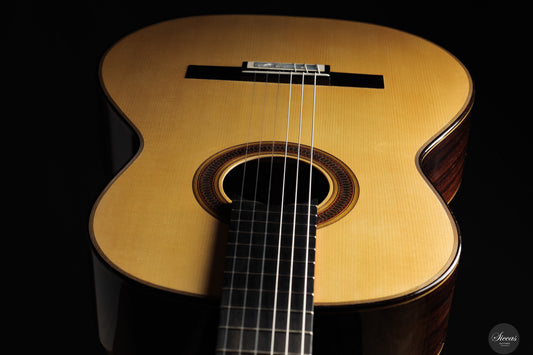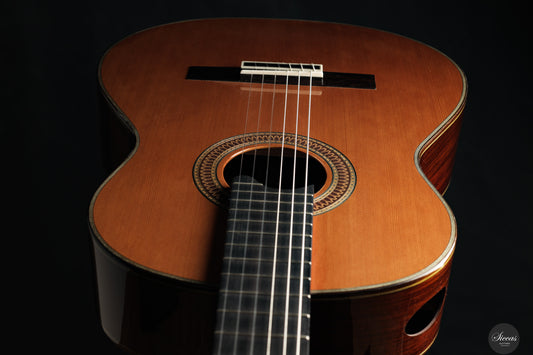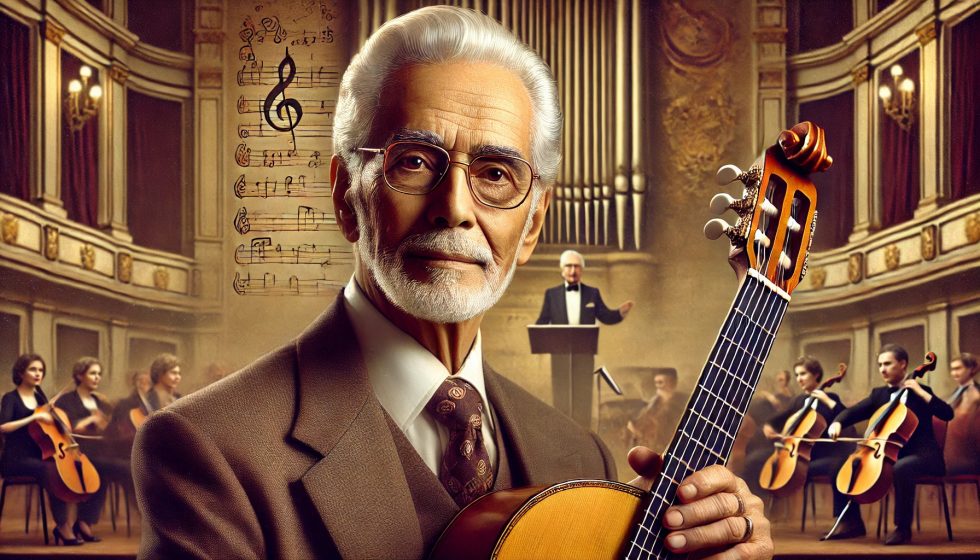
Leo Brouwer: A Maestro of Modern Classical Guitar
Leo Brouwer, a name synonymous with innovation in the world of classical guitar, is one of the most important figures in contemporary music. Known for his distinctive compositions, technical prowess, and significant contributions as a conductor and teacher, Brouwer's impact on the guitar and modern music spans decades. His works not only challenge performers but also bridge the gap between classical traditions and modern sensibilities. This article delves into the life and career of Leo Brouwer, exploring his profound influence on guitar music and beyond.
1. Early Life and Musical Beginnings
Leo Brouwer was born on March 1, 1939, in Havana, Cuba. He grew up in a musical environment, with his family playing a crucial role in his early exposure to music. His father was an amateur guitarist, and young Leo developed a fascination with the guitar early on. By the age of 13, Brouwer had begun to take formal lessons, quickly showing promise as both a performer and composer.
At the age of 17, Brouwer composed his first major work, Suite No. 1 for Guitar, demonstrating an early mastery of the instrument. His talent soon caught the attention of prominent musicians and teachers, which led him to further his studies abroad. He attended the Havana Conservatory and later pursued advanced studies at the Juilliard School in New York and the Hartt School of Music in Connecticut. Under the guidance of esteemed composers such as Vincent Persichetti and Stefan Wolpe, Brouwer developed a deep understanding of both classical and avant-garde music, which would shape his unique compositional style.
2. Influences and Stylistic Evolution
Brouwer's early influences included traditional classical composers such as Johann Sebastian Bach and Ludwig van Beethoven, but he was also inspired by the modernism of Béla Bartók, Igor Stravinsky, and Heitor Villa-Lobos. These diverse influences are reflected in his music, which often blends classical form with modern harmonic and rhythmic innovations. His Cuban heritage also plays a significant role in his music, with many compositions infused with Afro-Cuban rhythms and folkloric elements.
In the 1960s and 1970s, Brouwer became associated with the avant-garde movement. He experimented with atonal music, aleatory (chance) techniques, and minimalism, which earned him a reputation as a cutting-edge composer. His works during this period, such as Elogio de la Danza and Canticum, showcase his ability to fuse complex, modern techniques with the expressive possibilities of the classical guitar.
3. Notable Compositions
Leo Brouwer's vast repertoire includes over 300 works, ranging from solo guitar pieces to large orchestral compositions. His guitar works, in particular, are considered essential in the classical guitar canon, with many of them being widely performed and studied by guitarists around the world.
Some of his most notable guitar compositions include:
- "Estudios Sencillos" (Simple Studies): A collection of 20 short pieces, each focusing on specific technical challenges for guitarists. These studies are not only instructional but also musically rich, blending Brouwer's characteristic rhythms and melodies with clear pedagogical intent. They are frequently used by guitar teachers to develop both technique and musicality in students.
- "Elogio de la Danza": A two-movement work that reflects Brouwer's interest in rhythm and dance. The piece is technically demanding, using modern techniques such as dissonance and polyrhythm, while maintaining a strong connection to Cuban dance forms.
- "El Decamerón Negro": One of Brouwer's most beloved works, this three-movement piece is inspired by African folk tales and features a wide range of emotional and technical expression. It is celebrated for its lyrical beauty and rhythmic complexity.
- "Concerto de Toronto": Written for guitar virtuoso John Williams, this concerto is a hallmark of modern guitar literature. It showcases Brouwer's ability to blend orchestral grandeur with intimate guitar passages, making it a favorite in concert halls around the world.
- "Canticum": A composition that exemplifies Brouwer's avant-garde phase, Canticum employs a variety of modern techniques, including percussive effects and unusual harmonic structures, to create a work that is both intellectually stimulating and emotionally evocative.
4. Leo Brouwer as a Conductor and Educator
Beyond his contributions as a composer, Leo Brouwer has had an influential career as a conductor and educator. In the 1980s, he became the chief conductor of the Orquesta Sinfónica Nacional de Cuba and later the Havana Symphony Orchestra, where he played a key role in promoting contemporary and Cuban music. His work as a conductor has taken him to many of the world's leading orchestras, including performances with the Berlin Philharmonic and the Royal Philharmonic Orchestra in London.
Brouwer's role as an educator is equally significant. He has taught at several prestigious institutions and has mentored many of today's leading guitarists and composers. His deep understanding of music theory, history, and performance has made him a highly respected figure in academic circles, and his influence extends across generations of musicians.
One of his most notable achievements in education is the Havana International Guitar Festival, which he founded in the 1980s. The festival has become a global hub for guitarists, bringing together performers, composers, and students from all over the world to celebrate the classical guitar.
5. Leo Brouwer's Legacy in Classical Guitar
Leo Brouwer's legacy is monumental, particularly in the world of classical guitar. His compositions have expanded the technical and expressive boundaries of the instrument, challenging performers to explore new possibilities. His works are a staple in the repertoire of guitarists, from beginners to seasoned professionals, and his influence can be seen in the music of countless composers who followed in his footsteps.
What sets Brouwer apart is his ability to synthesize diverse musical styles and traditions into a cohesive, unique voice. He has successfully combined the formal structures of classical music with the rhythmic vitality of Cuban and Afro-Cuban music, as well as the experimentation of modernism. His work is characterized by a profound understanding of the guitar's capabilities, both as a solo instrument and in ensemble settings.
Moreover, Brouwer's contributions to music extend far beyond his compositions for guitar. His work as a conductor, educator, and advocate for contemporary music has helped shape the landscape of modern classical music, particularly in Latin America. His influence continues to grow, and his compositions remain a cornerstone of the classical guitar repertoire.
6. Awards and Recognitions
Throughout his illustrious career, Leo Brouwer has received numerous accolades and honors for his contributions to music. He has won multiple Grammy Awards, including Latin Grammys for Best Classical Album, and has been awarded honorary doctorates from several universities. In addition to these honors, Brouwer has received lifetime achievement awards and international recognition for his impact on classical music.
Brouwer has also been honored with Cuba's National Music Award, recognizing his significant contributions to Cuban culture and his role as an ambassador of Cuban music on the global stage.
7. Conclusion
Leo Brouwer stands as one of the most innovative and influential figures in the history of classical guitar and contemporary music. His work as a composer, performer, conductor, and educator has left an indelible mark on the music world. By pushing the boundaries of guitar composition and performance, he has expanded the instrument's expressive potential and inspired countless musicians across the globe.
With a career spanning over six decades, Brouwer's impact continues to be felt in concert halls, classrooms, and recordings worldwide. His compositions, known for their technical demands and emotional depth, ensure that his legacy will endure for generations to come.



